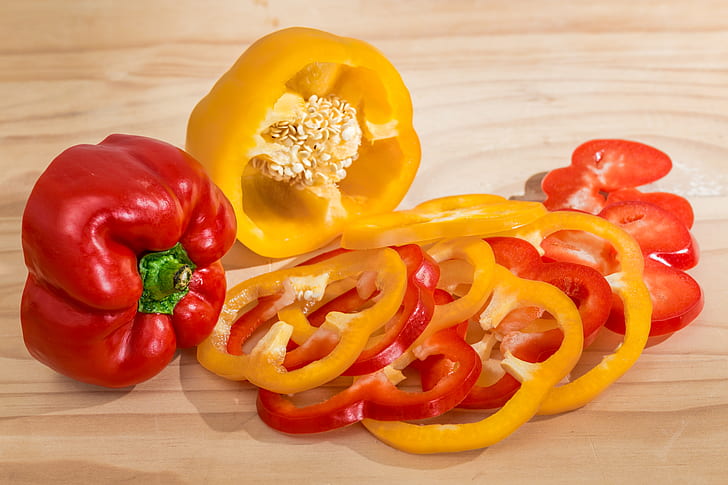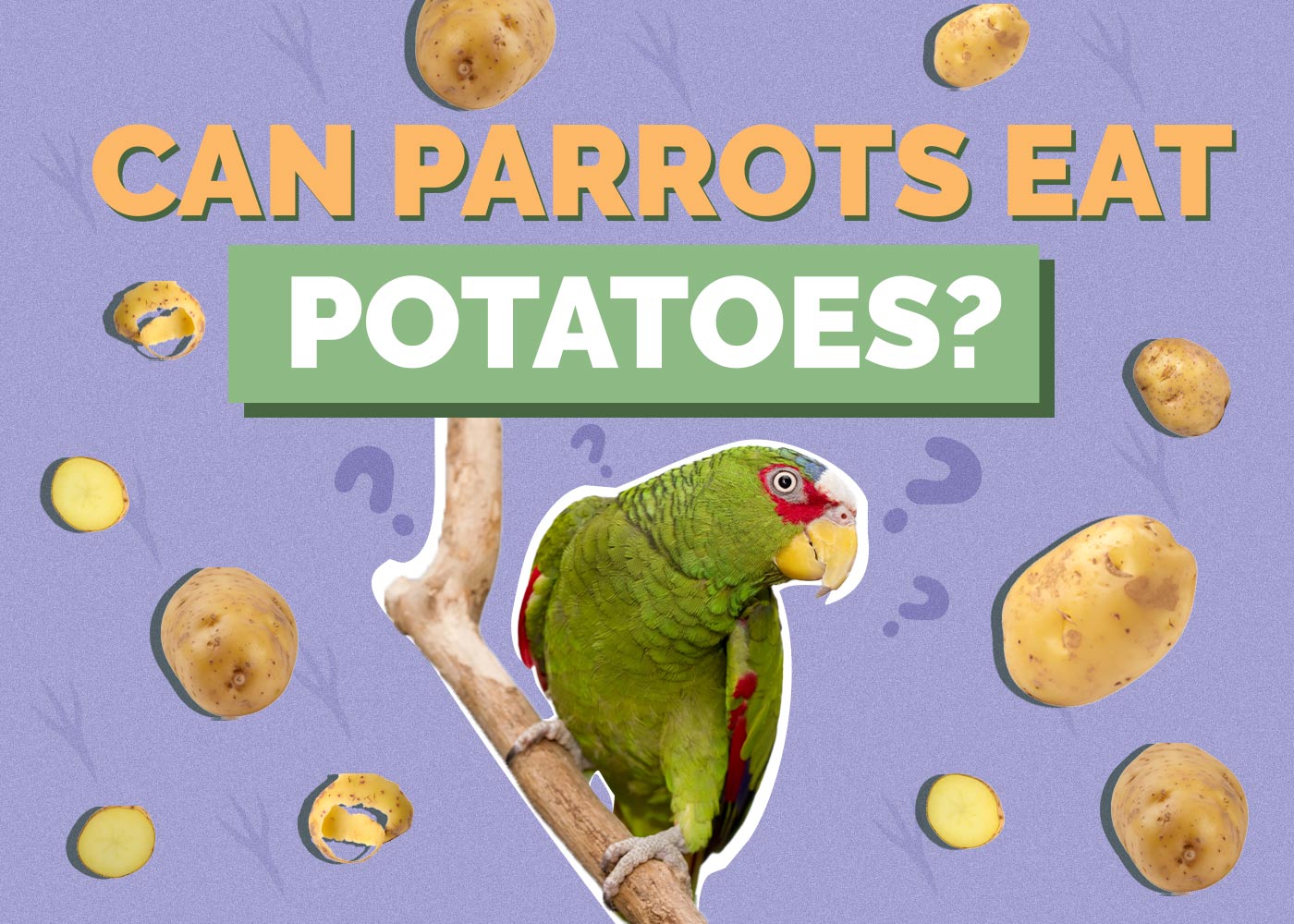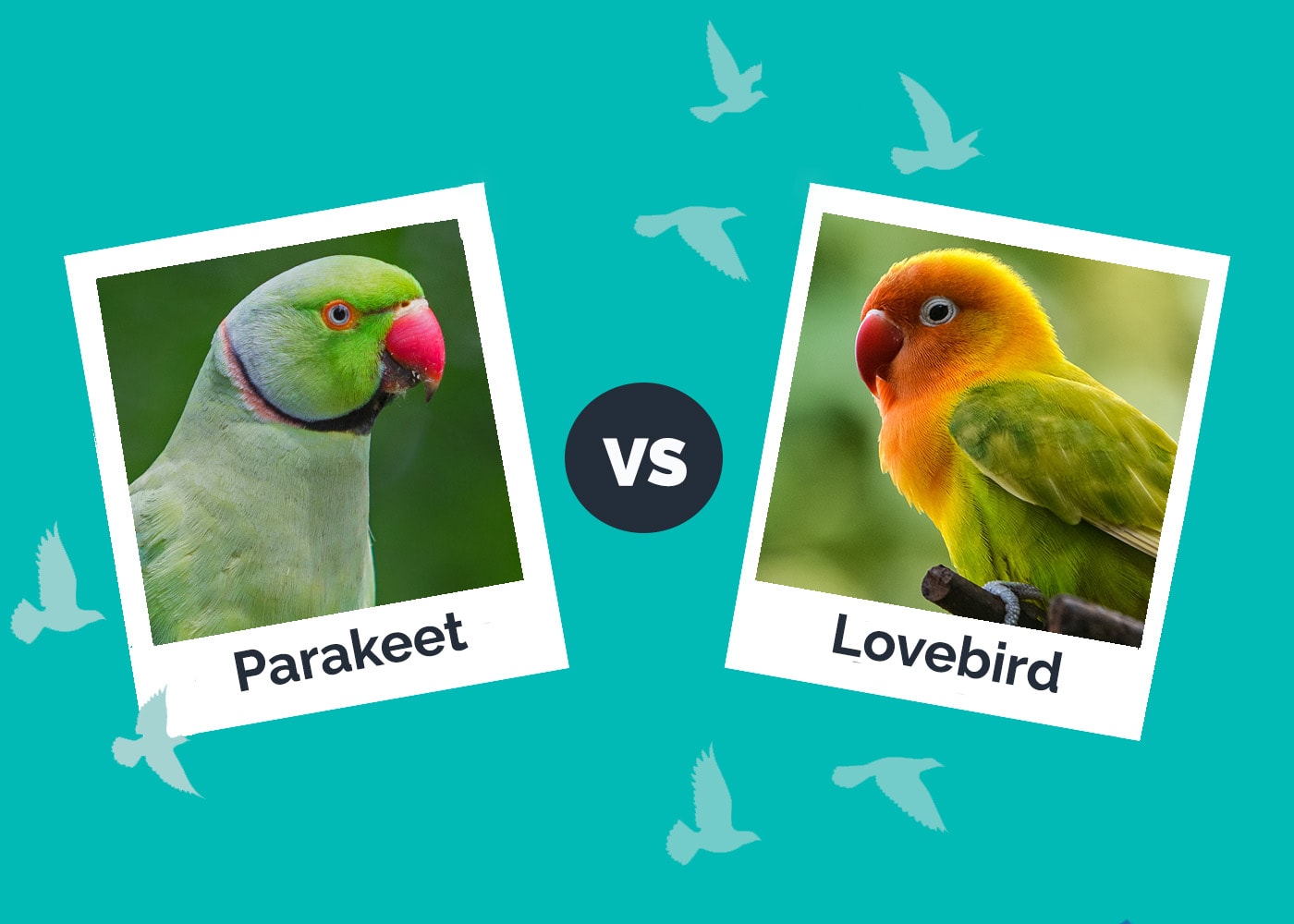Can Parakeets Eat Bell Peppers? Vet-Approved Nutrition Facts & FAQ
By Beth Crane
Updated on

Parakeets are a group of small parrots that typically have long tail feathers and colorful plumage. This category of parrot includes many different species, such as budgerigars (Melopsittacus undulatus), which are the most commonly kept species of parakeets.
Most parakeets share a similar diet, and bell peppers are safe for your parakeet to eat in moderation. This article will examine how safe bell peppers are for your parakeet to eat, what kinds and how much they can consume, and the benefits they can provide your feathered friend.
Are Bell Peppers Safe for Parakeets?
Bell peppers are botanical fruits that are a common ingredient in cooking that you can safely share with your parakeet! Red, green, and yellow bell peppers are the most common varieties, and the bright fruits are safe and healthy for your pet.
The bell pepper seeds are particularly enticing for parakeets, and they’ll have fun picking them off the heart of the fruit. The flesh is also sweet and nutritious, and adding bell peppers to your parakeet’s diet provides some variety as well as mental stimulation.

How Do I Safely Prepare Bell Peppers For My Parakeet?
Bell peppers should be thoroughly washed before serving them to your parakeet, as they may be sprayed with pesticides, which can be very harmful to them. Also, bacteria or other germs on the peppers from the store or farm may make your parakeet sick. Washing the pepper minimizes the risk of these issues for your pet.
You should prepare the bell pepper by cutting it into slices, but you don’t need to chop it up. However, be mindful that red bell peppers can make a bit of a mess of your parakeet’s feathers! You can also give the top and heart of the bell pepper to your parakeet so they can pick out the seeds, but avoid giving them the stem.
Frequently Asked Questions (FAQ)
Now you know your parakeet can safely eat bell peppers and how to prepare them, you might have other questions about how nutritious the fruits are and which kinds you can give your pet.
What Kinds of Bell Peppers Can Parakeets Eat? Can They Eat Other Peppers?
There are a few kinds of bell peppers you might see in the store. Red, yellow, orange, and green bell peppers are the same species! Bell peppers belong to the grossum group of the Capsicum annum species of pepper, including chili and sweet peppers.
All colors of bell pepper are safe for your parakeet to eat, including exotic colors such as white, brown, and candy-striped! Your parakeet can eat hot peppers, too! That’s because birds are not affected by capsaicin, the chemical responsible for the tingling burn hot peppers invoke in humans. Because of that, your parakeet can happily crunch away at even the hottest pepper with no ill effects. They provide great health benefits, too!

How Much Bell Pepper Can I Give My Parakeet?
Like any other fruit or vegetable, bell peppers should be given to your parakeet in moderation. Introducing the fruit slowly can encourage your pet to try it, as parakeets can sometimes be fussy with their food. This also minimizes the chance of them rejecting it entirely!
Your parakeet can eat pieces of bell pepper daily, but fresh fruit and vegetables should make up only around 25-30% of their diet. You may find that your parakeet produced more droppings after eating bell peppers. This is sometimes mistaken for diarrhea, but may actually be thanks to the high water content of the peppers.
Are Bell Peppers Healthy For Parakeets?
Bell peppers are very nutritious for parakeets and contain high amounts of vitamin A, which is crucial for your bird’s health. Vitamin A is critically important for the correct functioning of your parakeet’s skin, feathers, and immune system.
- Nasal discharge
- Swelling of the eyelids (periorbital swelling)
- Anorexia
- Crusts and flaking of the skin
- Poor feather quality and feather-pulling
- Reproductive and digestive issues
- White lesions on the skin and eyes
- Difficulty breathing
Red bell peppers have the highest amounts of vitamin A and antioxidants, which make them a great choice to give your parakeet.
Bell peppers also contain a high amount of vitamins C and E, though too much vitamin C can cause problems. Bell peppers are high in fiber and moisture, helping to support healthy digestion.
Final Thoughts
Bell peppers and other members of the Capsicum allum species are healthy fruits to give your parakeet. They can eat bell peppers as part of their daily diet, and they can eat all the parts except the stem. Ensure you thoroughly wash any peppers before giving them to your pet since pesticides and other chemicals can harm your bird. Finally, bell peppers are nutritionally dense and provide vitamin A, which is very important to their health.
See Also:
Featured Image Credit: KaiPilger, Pixabay












